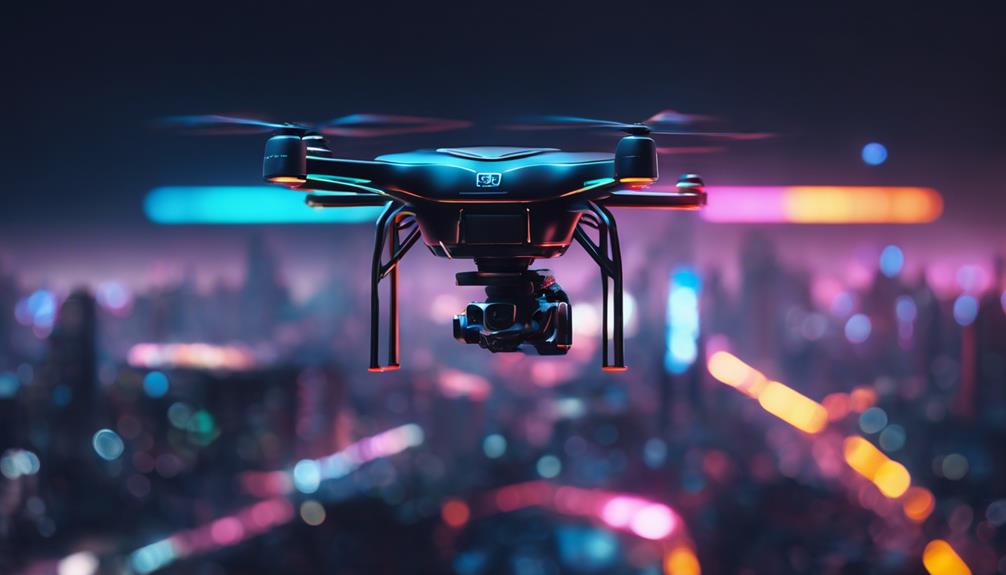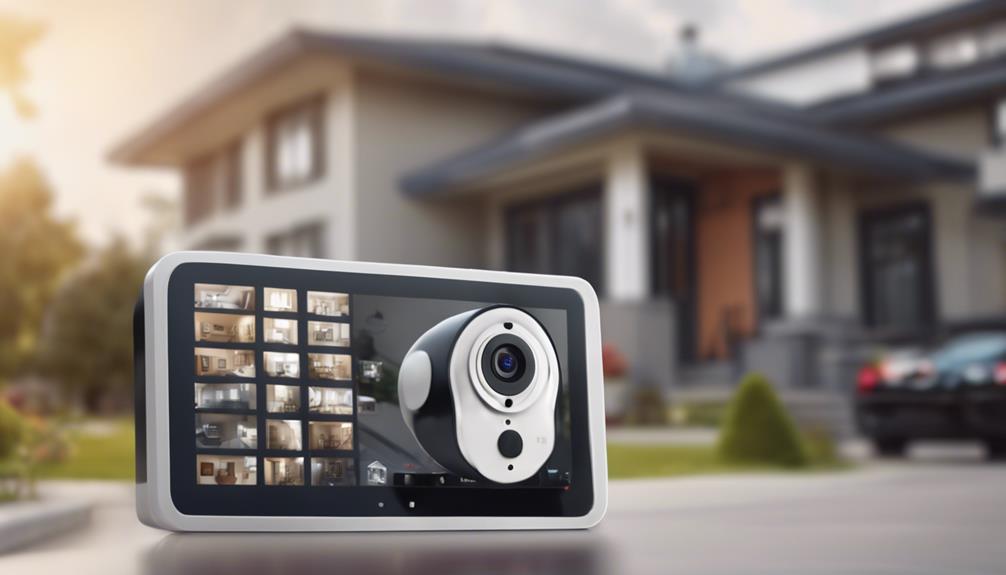
In an age where road safety and security are paramount, vehicle spy cameras have emerged as essential tools for motorists. These advanced surveillance devices not only serve as deterrents to potential criminals but also provide invaluable evidence that can be vital in various situations. With increasing incidents of vehicle theft, hit-and-runs, and insurance fraud, the importance of having a reliable vehicle spy camera cannot be overstated. This article explores the significance of these devices, their features, legal considerations, and the future of vehicle surveillance technologies.
Understanding the Importance of Vehicle Spy Cameras Today
Vehicle spy cameras are designed to capture high-quality video footage of the surroundings, offering drivers peace of mind as they navigate their daily journeys. In recent years, the rising rates of auto theft and road accidents have underscored the necessity of these cameras. They not only help in monitoring one’s vehicle but also serve as a crucial tool for gathering evidence in case of disputes, accidents, or crimes. As a result, many vehicle owners view these cameras as an investment in their safety and security.
Moreover, vehicle spy cameras foster a culture of accountability among drivers. Knowing that their actions are being recorded encourages responsible driving and discourages reckless behavior. This accountability extends beyond personal vehicles; fleet operators and businesses benefit significantly from equipping their vehicles with spy cameras, leading to improved driver behavior and reduced accident rates.
How Vehicle Spy Cameras Enhance Road Safety and Security
The presence of a vehicle spy camera can substantially enhance road safety by acting as a deterrent to criminal activity. Potential thieves and vandals are less likely to target a vehicle that has visible cameras installed. Additionally, these cameras provide real-time monitoring, allowing owners to keep an eye on their vehicles through smartphone apps, even from a distance. This constant vigilance can be a game-changer when it comes to preventing theft and vandalism.
Furthermore, in the event of an accident or collision, having video evidence can provide clarity and transparency regarding the incident. This footage can resolve disputes between involved parties and their insurance companies, often leading to quicker claims processing. As a result, vehicle spy cameras not only protect the vehicle itself but also contribute to safer roads overall.
Key Features to Look for in a Vehicle Spy Camera
When considering a vehicle spy camera, certain features are essential to ensure maximum effectiveness. First, high-definition video resolution is crucial for capturing clear and detailed footage. Look for cameras that offer at least 1080p resolution, as this will help greatly in identifying license plates and other important details. Additionally, night vision capabilities are important for recording in low-light conditions, making it easier to capture footage in various settings.
Another important feature is the field of view (FOV). A wider FOV allows the camera to capture more of the surroundings, providing comprehensive coverage of potential blind spots. Other useful features include motion detection, loop recording, and cloud storage options that allow for easy access to footage. Investing in a model with these features can make a significant difference in the performance and utility of the camera.
The Legal Considerations of Using Spy Cameras in Vehicles
While the benefits of vehicle spy cameras are substantial, it is crucial to understand the legal implications of using such devices. Laws regarding surveillance and recording can vary significantly between countries and even between states or regions. Generally, recording video without consent may be considered a violation of privacy laws. It is essential for vehicle owners to familiarize themselves with local regulations to ensure compliance.
Additionally, some jurisdictions may have specific rules about where cameras can be placed and how footage can be used. For instance, while dash cams that capture public spaces are usually permissible, it may be illegal to record audio without the consent of those involved. Vehicle owners should review applicable laws and, if necessary, consult with a legal expert to understand their rights and responsibilities fully.
Top Vehicle Spy Camera Models: A Comprehensive Review
When it comes to choosing the right vehicle spy camera, several models stand out in the market. One highly rated option is the Garmin Dash Cam 66W, known for its wide 180-degree field of view and excellent clarity in both day and night conditions. The integrated GPS feature adds an extra layer of usefulness by recording the vehicle’s location and speed, which can be crucial in an accident.
Another top contender is the Vantrue N4, a three-channel dash cam that records both front and rear views, along with the interior of the vehicle. This comprehensive coverage is ideal for rideshare drivers and families. Its high-resolution recording and reliable night vision capabilities make it a favorite among users seeking extensive surveillance options.
Installation Tips: Setting Up Your Vehicle Spy Camera
Installing a vehicle spy camera can seem daunting, but with a few tips, it can be a straightforward process. First, determine the best location for your camera. Ideally, it should be placed on the windshield, unobstructed by rearview mirrors or other obstructions. Clean the mounting surface thoroughly to ensure a secure attachment. Most dash cams come with adhesive or suction mounts that can be easily applied.
Next, ensure that all wiring is neatly tucked away to avoid any interference with vehicle operation. If the camera requires a power source, consider hardwiring it to the vehicle’s fuse box to avoid clutter and maintain a clean look. Finally, check the camera’s angle and field of view during installation to guarantee optimal coverage of the road ahead.
Real-Life Stories: How Spy Cameras Prevented Theft
Vehicle spy cameras have proven to be invaluable in preventing theft and recovering stolen vehicles. For instance, a recent case in a suburban neighborhood involved a homeowner whose car was stolen from their driveway. Thanks to a dash cam that recorded the theft in progress, authorities were able to identify the thief and recover the vehicle within hours. The footage not only provided clear evidence but also helped in apprehending a suspect involved in multiple car thefts in the area.
In another instance, a delivery driver used a vehicle spy camera to catch an individual attempting to break into their parked delivery van. The footage showed the suspect’s face and vehicle details, leading to a swift arrest. Such real-life stories highlight the effectiveness of vehicle spy cameras in deterring criminal activity and aiding in the recovery of stolen property.
Enhancing Insurance Claims with Vehicle Spy Footage
In the aftermath of an accident, having access to recorded footage can significantly streamline the insurance claims process. Many insurance companies now encourage policyholders to use dash cams, as video evidence can clarify liability and expedite claims approval. A clear video can help validate a driver’s account of events, reducing the likelihood of disputes that can prolong the claims process.
Moreover, footage can serve as indisputable proof in cases where one party may attempt to fabricate details. For instance, if a driver claims that the other vehicle ran a red light, video evidence can confirm or refute that assertion, making it easier for insurance companies to assign fault. By equipping themselves with a vehicle spy camera, drivers can enhance their chances of a smooth and efficient claims process.
Protecting Your Privacy: Safe Use of Spy Cameras
While vehicle spy cameras serve significant safety purposes, it is essential to protect your privacy and the privacy of others. Vehicle owners should be cautious about where and how they install these cameras to avoid inadvertently capturing footage of private property or individuals without their consent. Positioning the camera to focus solely on traffic and public areas can help mitigate privacy concerns.
Additionally, it’s vital to manage how and when the footage is shared. Many cameras allow users to store footage locally or upload it to the cloud, which can pose risks if accessed by unauthorized individuals. Vehicle owners should ensure that their devices are password-protected and that they control the sharing settings to prevent misuse of recorded information.
The Future of Vehicle Surveillance Technology: Trends Ahead
As technology continues to evolve, we can expect significant advancements in vehicle surveillance systems. One promising trend is the integration of artificial intelligence (AI) into vehicle spy cameras. AI can enhance the functionality of these devices by providing real-time alerts for suspicious activities, recognizing faces, and even analyzing driving patterns to improve safety.
Furthermore, as vehicle-to-everything (V2X) communication becomes more common, vehicle spy cameras could eventually integrate with smart city infrastructure to provide a more comprehensive picture of road conditions and accidents. This connectivity could lead to smarter traffic management systems and improved safety measures on the roads. The future of vehicle surveillance is bright, offering exciting possibilities for enhanced safety and security.
In conclusion, vehicle spy cameras are becoming indispensable tools for enhancing road safety and security. Their ability to deter crime, provide evidence in disputes, and streamline insurance claims makes them a valuable investment for any vehicle owner. With the right features, legal considerations, and installation practices, these cameras can ensure that drivers remain protected on the road. As technology continues to advance, the future of vehicle surveillance appears promising, indicating that these devices will only become more effective and essential in safeguarding our vehicles and ensuring our safety on the roads.





